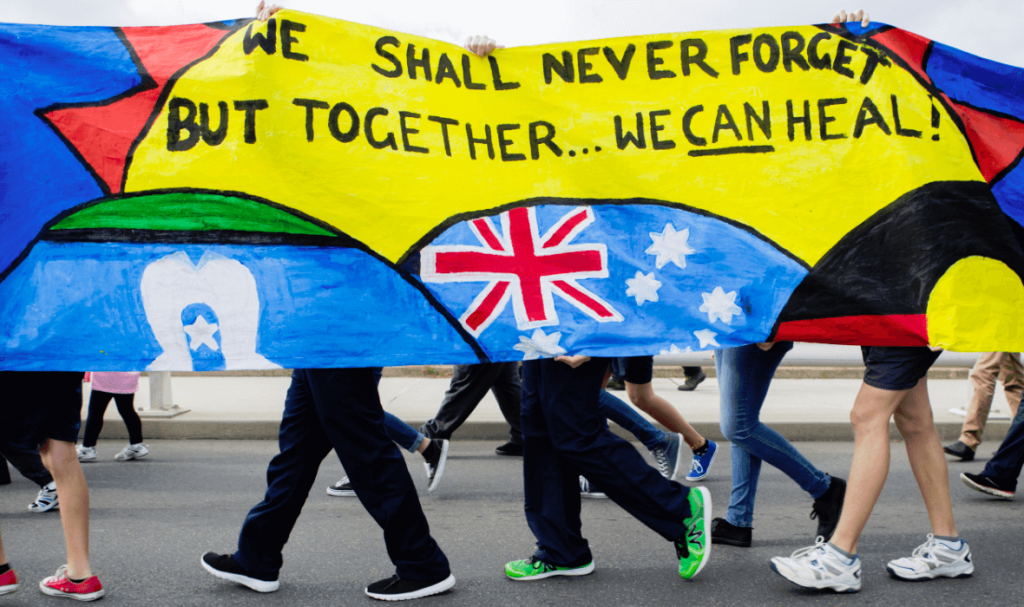

National Reconciliation Week
The theme for #NRW2018 is Don’t Keep History a Mystery.
This year, we invite Australians to Learn, Share, and Grow – by exploring our past, learning more about Aboriginal and Torres Strait Islander histories and cultures, and developing a deeper understanding of our national story.
NRW is bookended by two important dates – the anniversary of the 1967 referendum on 27 May, and the anniversary of the historic High Court Mabo judgement on 3 June.
- 27 May 1967 – On this day, Australia’s most successful referendum saw more
than 90 per cent of Australians vote to give the Australian Government power to make laws for Aboriginal and Torres Strait Islander people and recognise them in the Census. - 3 June 1992 – On this day, the Australian High Court delivered the Mabo decision, the culmination of Eddie Koiki Mabo’s challenge to the legal fiction of ‘terra nullius’ (land belonging to no one) and leading to the legal recognition of Aboriginal and Torres Strait Islander peoples as the Traditional Owners and Custodians of lands. This decision paved the way for Native Title.
Australia has a long history of reconciliation and countless people – Aboriginal, Torres Strait Islander and non-Indigenous – have dedicated their life’s work to the reconciliation movement. As a result, many significant steps have been taken.
In the 25 years since the Council for Aboriginal Reconciliation (CAR) was established, the concept of reconciliation has taken a holistic approach that encompasses rights, as well as so-called symbolic and practical actions. Over this time, reconciliation has introduced a greater focus on the relationship between Aboriginal and Torres Strait Islander peoples and non-Indigenous Australians and opened up a national debate on prejudice, discrimination and racism. It has raised broader questions about our national identity and the place of Aboriginal and Torres Strait Islander histories, cultures and rights in our nation’s story. Recently, Reconciliation Australia also oversaw the Recognise campaign, promoting greater awareness of, and support for constitutional recognition of Australia’s First Peoples. We continue to work with Aboriginal and Torres Strait Islander groups, communities and individuals to see constitutional and legislative reform based on the recommendations of the Uluru Statement from the Heart.
Reconciliation can no longer be seen as a single issue or agenda and the contemporary definition of reconciliation must weave all of these threads together.
To develop a framework to measure Australia’s progress towards reconciliation across these many dimensions, Reconciliation Australia undertook a review of reconciliation in Australia and internationally. As a result of this work, five critical dimensions that together represent a holistic and comprehensive picture of reconciliation were identified.
For more information please visit – https://www.reconciliation.org.au/what-is-reconciliation/
#ExpectGreatThings


© Infant Jesus School 2017
17 Smith St, Morley WA 6062
Tel: (08) 9276 1769 | Fax: (08) 9276 2998
Website by Chameleon Logic








